10 Bedtime Rituals That Help You Wake Up Refreshed

Waking up groggy and drained doesn’t have to be your daily routine. The secret to feeling refreshed in the morning often begins the night before. By crafting a thoughtful bedtime ritual, you can train your body and mind to unwind, reset, and prepare for truly restorative sleep. These aren’t just habits—they’re gentle cues that signal it’s time to switch gears, slow down, and embrace calm. Whether it’s dimming the lights, sipping soothing tea, or stretching away stress, small actions add up. Ready to transform your nights into a sleep sanctuary? Here are 10 simple rituals to help you rise renewed.
1. Keep a Consistent Sleep Schedule
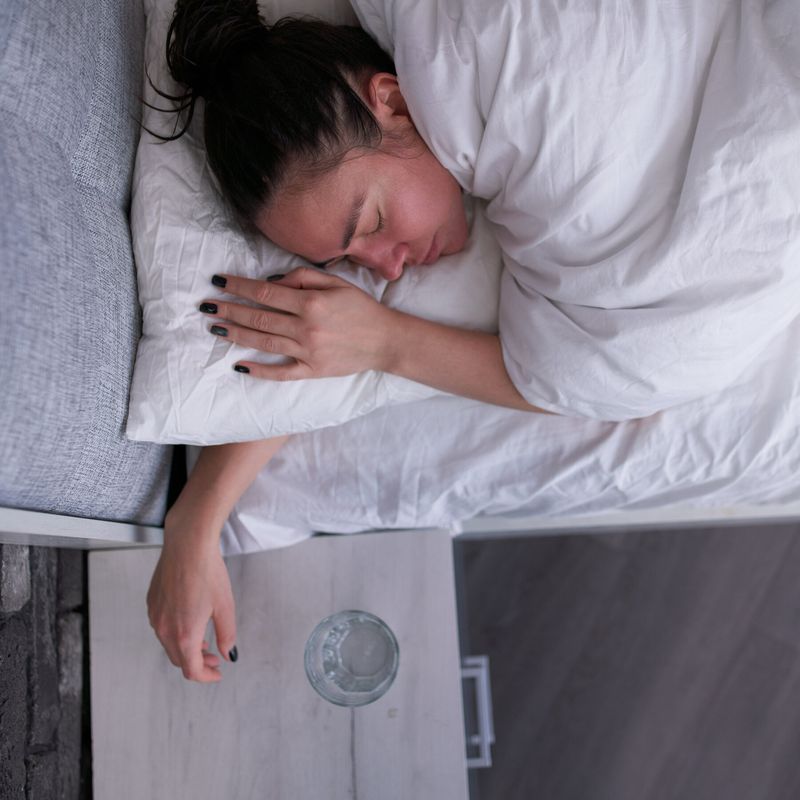
Your body thrives on routine. Going to bed and waking up at the same times daily—even on weekends—helps regulate your internal clock, known as your circadian rhythm.
When this rhythm stays steady, your body releases sleep hormones at the right times, making it easier to fall asleep quickly and wake naturally.
Many people notice improved sleep quality within just a week of maintaining consistency. Think of your sleep schedule like training for a sport—the more consistent your practice, the better your performance becomes.
2. Follow the 3-2-1-0 Rule

Numbers make habits easy to remember, and the 3-2-1-0 rule creates the perfect conditions for quality sleep. Stop eating three hours before bed to avoid digestive discomfort that can keep you awake.
Wrap up work two hours before bedtime to give your mind a chance to relax and unwind. Disconnect from all screens one hour before bed to naturally boost melatonin production.
Avoid caffeine and alcohol in the evening, as both can significantly disrupt your sleep cycles. While alcohol may make you drowsy, it interferes with deep sleep, and caffeine can linger in your system for up to eight hours.
3. Create a Lighting Wind-Down

Light exposure directly controls your sleep-wake cycle. Bright lights trick your brain into thinking it’s still daytime, suppressing the sleep hormone melatonin when you need it most.
Replace harsh overhead lighting with warm lamps about an hour before bed. Consider using amber-colored light bulbs or night mode on devices if you must use them.
Many people find candlelight particularly calming as part of their evening ritual. Your bedroom should be as dark as possible during sleep—blackout curtains work wonders, or try a comfortable sleep mask if outside light is unavoidable.
4. Take a Warm Evening Bath
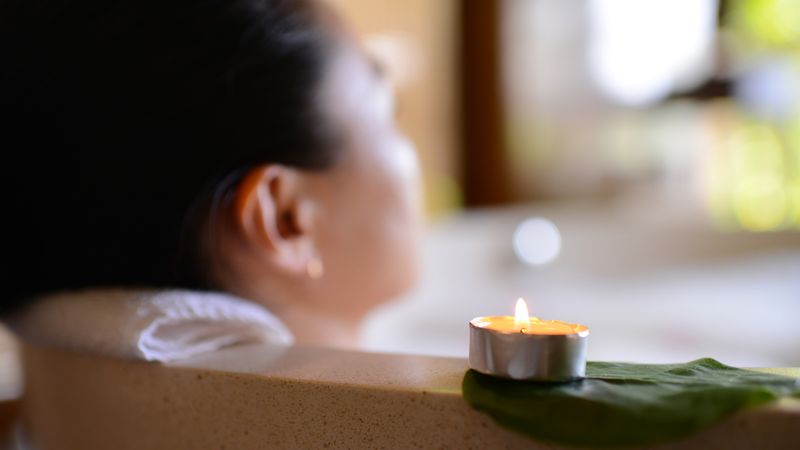
A warm bath or shower creates the perfect sleep-inducing temperature drop. When you soak in warm water 60-90 minutes before bedtime, your body temperature temporarily rises.
After you step out, your core temperature begins cooling rapidly—a natural trigger that signals your brain it’s time to sleep. Add a few drops of lavender essential oil to enhance relaxation, as research shows its scent can improve sleep quality.
Keep the bathroom dimly lit during this ritual to maintain the melatonin-friendly environment you’re creating throughout your evening wind-down routine.
5. Stretch Away the Day’s Tension
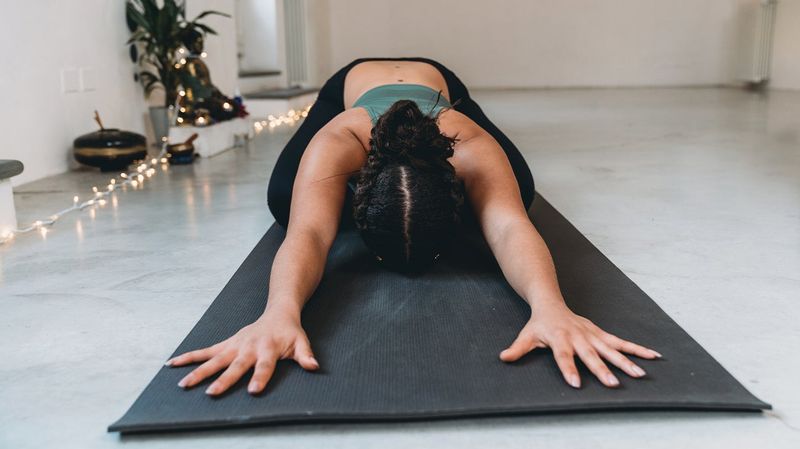
Physical tension often translates to mental restlessness at bedtime. Gentle evening stretching releases the knots that form during the day, especially if you work at a desk or experience stress.
Focus on slow, gentle movements rather than vigorous exercise, which can be stimulating. Simple forward folds, neck rolls, and child’s pose are perfect for bedtime.
Many people find that holding each stretch for 5-10 deep breaths maximizes relaxation benefits. Your body stores stress physically—in tight shoulders, a clenched jaw, or stiff hips—and these gentle movements help release what your day has built up.
6. Master a Relaxation Technique
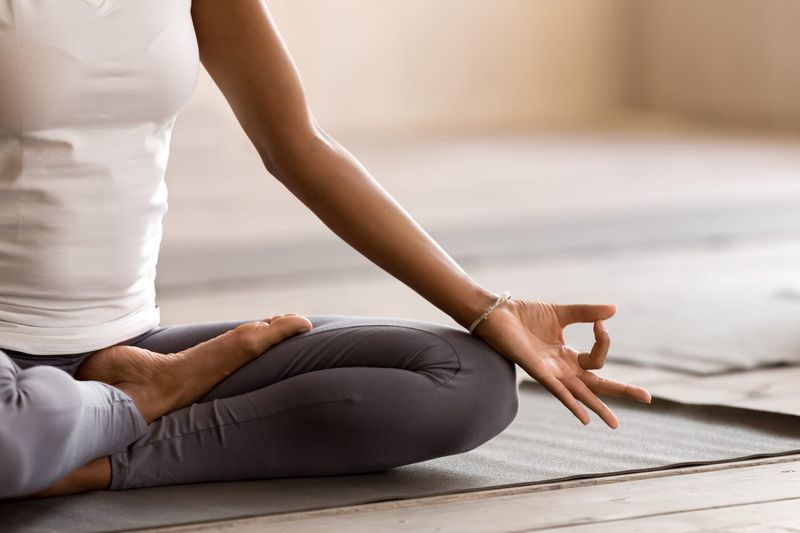
Racing thoughts don’t stand a chance against practiced relaxation techniques. The 4-7-8 breathing method works wonders: inhale quietly through your nose for 4 counts, hold for 7, then exhale completely through your mouth for 8 counts.
Progressive muscle relaxation offers another approach—tense each muscle group for 5 seconds before releasing, starting at your toes and working upward. Regular practitioners report falling asleep faster and returning to sleep more easily after nighttime awakenings.
Your nervous system responds quickly to these deliberate calming signals, shifting from alert “fight-or-flight” mode to restorative “rest-and-digest” mode.
7. Brain Dump in a Sleep Journal
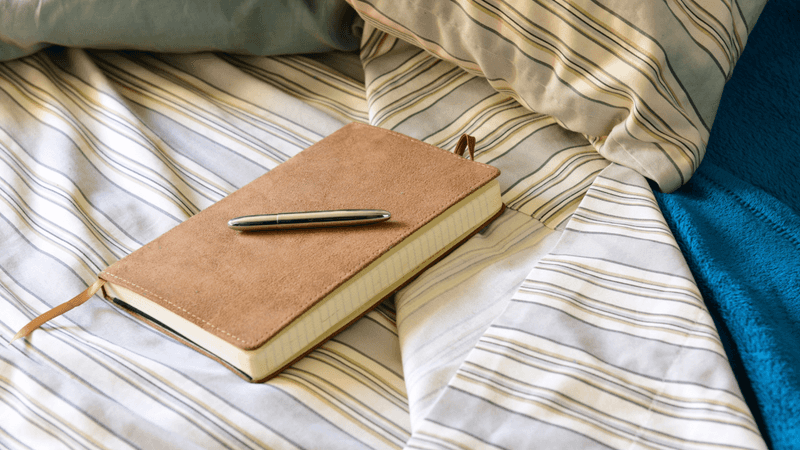
Unfinished business keeps your mind spinning when your head hits the pillow. Taking five minutes to write down tomorrow’s tasks gives your brain permission to stop rehearsing them all night.
A dedicated sleep journal beside your bed serves as a “parking lot” for thoughts that might otherwise disrupt sleep. Many sleep experts recommend including three things you’re grateful for alongside your to-do list—this positive reflection counterbalances worry about upcoming responsibilities.
Your brain processes what you write down as “handled,” reducing the mental load that often prevents deep sleep from taking hold.
8. Sip Sleep-Promoting Beverages
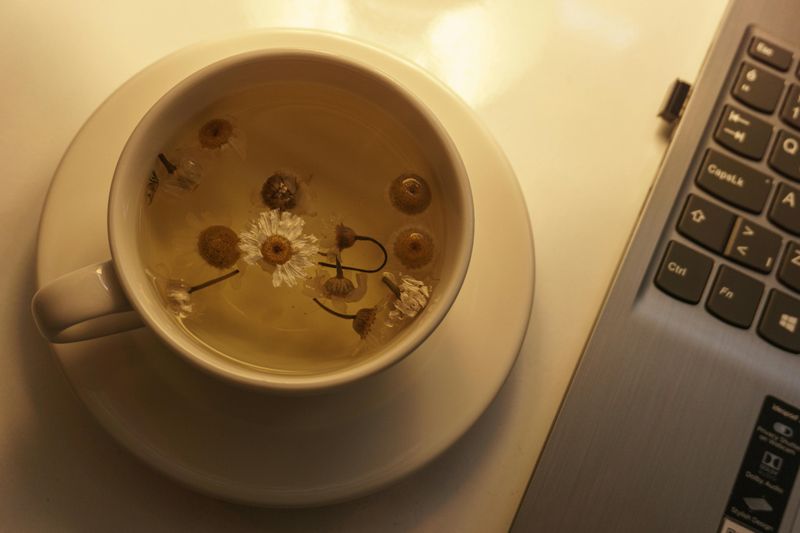
Nature provides gentle sleep aids in liquid form. Chamomile tea contains apigenin, a compound that binds to brain receptors to decrease anxiety and initiate sleepiness.
Tart cherry juice delivers natural melatonin, while warm milk offers tryptophan that converts to sleep-inducing serotonin. Make your bedtime beverage part of your wind-down ritual, sipping slowly about 30-60 minutes before sleep.
Avoid drinking too much liquid right before bed to prevent midnight bathroom trips. Holding a warm mug engages multiple senses—the warmth in your hands, the rising steam, and the comforting aroma all signal your body that rest is coming soon.
9. Design Your Sleep Sanctuary

Your bedroom environment dramatically impacts sleep quality. Temperature matters most—studies show 65-68°F (18-20°C) is ideal for most people, as your body temperature naturally drops during sleep.
Remove clutter that creates subconscious stress and invest in breathable, comfortable bedding. Sound management helps too—white noise machines mask disruptive noises, while earplugs work for some sleepers.
Bedroom air quality affects breathing during sleep, so consider an air purifier if allergies or pollution are concerns. Your sleep space should feel like a retreat from the world—a place your body instantly recognizes as safe for surrendering to sleep.
10. Wake Naturally With Sunrise Simulation

Harsh alarm sounds shock your system, often interrupting deep sleep phases. Sunrise alarm clocks mimic natural dawn by gradually increasing light 20-30 minutes before your wake time, helping your body transition naturally from sleep to wakefulness.
This gentle approach aligns with your circadian rhythm, triggering the morning cortisol rise that energizes you. Many models add gentle nature sounds that increase in volume as the light brightens.
Resisting the urge to check the time during night wakings also improves sleep quality—turn clock faces away and trust your sunrise alarm to wake you at the right time.

Comments
Loading…